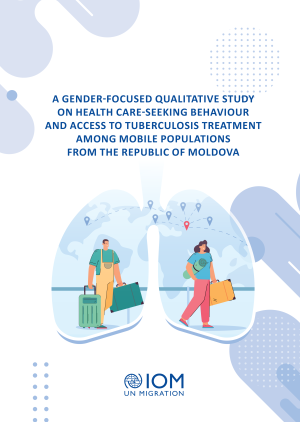The current study explores the differences between men and women in the knowledge, attitudes, and practices on the diagnosis, surveillance, treatment, and prevention of tuberculosis among the mobile population in the Republic of Moldova. The study is based on the analysis of qualitative data from ten focus group discussions (FGDs) out of which seven with TB patients with external migration experience three with medical specialists, two with phthisio-pneumologists and one with family doctors. There have been also, 66 interviews conducted, among them 16 with phthisio-pneumologists and 50 interviews with the TB patients (with external migration experience). Fieldwork was conducted between September and November 2021. The proposed study is in line with the Sustainable Development Goals (SDGs) agenda and Moldovan National TB Program for 2021-2025. Research to date suggests that a targeted approach is needed, specifying different risk groups for tuberculosis. Awareness rising actions that include screening and early referral to the doctor are extremely important for disease prevention. For TB patients undergoing treatment psychosocial and socioeconomic support is essential for adherence, given the complex and lengthy treatment process. The results of the study could serve as a basis for the formulation of pertinent recommendations to the relevant state and civil society actors to develop and implement effective, migrant-oriented and gender-sensitive and appropriate responsive TB policies to effectively identify, intervene, and provide adequate health services to TB patients.

A gender-focused qualitative study on health care-seeking behaviour and access to tuberculosis treatment among mobile populations from the Republic of Moldova
Author/s: IOM
Year:
Language: English
Publication Type: Technical Report(External)
Download this Publication
Year:
Language: English
Publication Type: Technical Report(External)
Download this Publication
Description
Region/Country (by coverage)
Publisher
IOM
Project Type